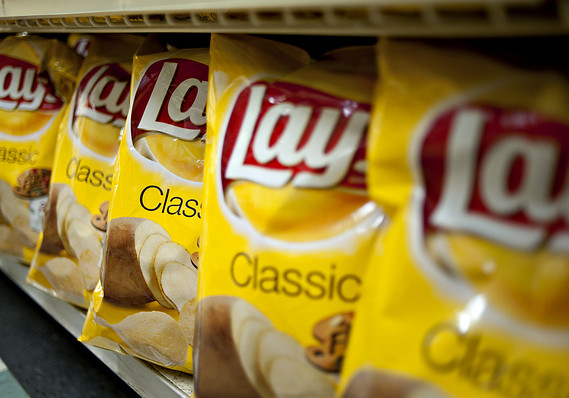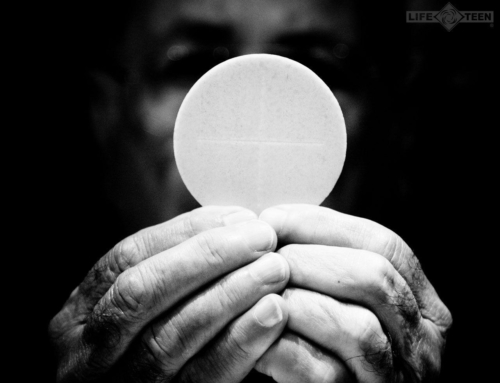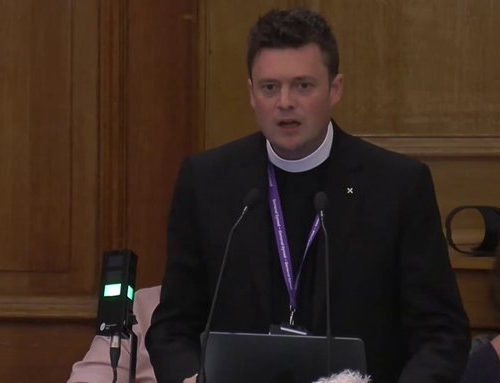A few days ago I tweeted about women priests, and as usual with Twitter it was misconstrued by some. That’s okay as far as I’m concerned. One of my theories about Twitter is that it is a forum for stirring the pot.
I tweeted that ordaining women was like using potato chips and Pepsi for the Eucharist or sand for a baptism.
No I wasn’t comparing women to Pepsi and potato chips and therefore insulting them.
I might just as well have said that ordaining women was like using Filet Mignon and Champagne for Eucharist.
What I was getting at was the sacramental theology of the Catholic faith. The arguments against women’s ordination have been along the lines of “Jesus didn’t choose any women to be apostles so we can’t either.” The basis of this argument was stated by Pope St John Paul II in Ordinatio Sacerdotalis when he stated,
Wherefore, in order that all doubt may be removed regarding a matter of great importance, a matter which pertains to the Church’s divine constitution itself, in virtue of my ministry of confirming the brethren (cf. Lk 22:32) I declare that the Church has no authority whatsoever to confer priestly ordination on women and that this judgment is to be definitively held by all the Church’s faithful.
Another argument is, “the priest stands in persona Christi as an icon of Christ. Women can’t do that.”
OK, but at the heart of Pope John Paul’s statement is the understanding that the church does not have the authority to alter what Jesus himself established, and when it comes to the seven sacraments (which are means of our salvation) we can’t tinker with them.
One of the problems here is poor catechesis among Catholics. There seems to be little understanding about the basics of sacramental theology, and this problem reverberates into the debate about same sex marriage as well as women’s ordination.
In Catholic teaching a sacrament is either valid or it is not valid. For a sacrament to be valid there has to be proper form, proper matter, proper minister and proper intention. The form is the form of words used to administer the sacrament and sometimes proper form includes the location and officiant.
The proper minister is the person administering the sacrament, and this can vary. For the Eucharist the proper minister is a validly ordained Catholic priest, but for baptism it could (technically) be anyone. For marriage the proper ministers are the bride and groom.
The proper intention is to intend to do what the church does.
The proper matter is the physical stuff of the sacrament, and this is where the Pepsi and potato chips (or filet mignon and champagne) come in. The proper matter for baptism is water. You can’t use oil or orange juice or dump sand or ashes on a person’s head. For Eucharist the proper matter is unleavened bread and unadulterated wine of the grape. You can’t use filet mignon and champagne or chips and Pepsi or pizza and root beer.
This might seem obvious, but some folks argue that for good cultural reasons you ought to be able to change the matter of the sacrament. This came up in the Amazonian synod where there was some discussion about using a local staple from a jungle food rather than bread made from wheat. No can do. It’s not valid matter and we can’t change it even for an ostensibly good cultural reason.
The same thing applies therefore, for the sacrament of marriage. The matter is the conjugal act–the union of one man and one woman which is open to the gift of life. It is impossible for two guys or two gals have sex to be the proper matter for a Catholic sacrament.
Same thing for ordination. The proper matter for the Catholic sacrament of ordination is a baptized Catholic man. A woman cannot be proper matter for the sacrament.
This is not necessarily a statement that denigrates the ministry of women or, indeed, the ordination of women in non-Catholic denominations. Non-Catholic churches don’t recognize any but two sacraments therefore Catholic sacramental theology doesn’t apply. We can recognize the worthwhile ministry of women clergy and acknowledge their gifts. But they are not Catholic priests–furthermore such an acknowledgement is not insulting to them because they themselves recognize and rightly acknowledge that they are not Catholics.
This is one of the gloriously maddening things about being Catholic: that it is particular. We say this is a valid sacrament but that is not. This person is a validly ordained Catholic priest. That person is not and here’s why.
In this sentimental and subjective society too many people hear these definitions and believe we are therefore making value judgements. We’re not.
The matter of a sacrament is a matter of revelation and a matter of fact and a matter we can’t change even if we want to.







Fantastic. Beautifully and brilliantly explained. St. Thomas would be proud
For about 99% of this article I agree. It’s the comment “This is not necessarily a statement that denigrates the ministry of women or, indeed, the ordination of women in non-Catholic denominations.”
Now, depending on the meaning of the word ministry, of course, women and men have different roles in the Church. And this is as far as it goes. If ministry includes being an actual “priest” then it’s overstep it’s boundaries.
The “ordination of women” in non-Catholic denominations actually does denigrate a women’s God given role as mother and caretaker. This is not to take away from a women’s dignity but it does speak volumes against Christianity. At what point does a “Christian” denomination stop being Christian? Ordination of a woman to be a priest or bishop seems a pretty good argument of them rejecting Jesus Christ’s teaching. I say this because at one point I would of called myself a Catholic but in retrospect, I wasn’t a Catholic but one “pretending” to be. Just like these women pretending to be “priests” or “bishops” are pretending to be Christian.
And to call women “priests” speaks volumes. At least Pagans got the terminology correct and called them “priestesses”. They are as much priests as a frog says quack. Theology must be based upon reality and these “Protestant” denominations allowing “gay” priests or “lesbian” bishops (which the words gay and lesbian are fake self-identifiers) are not based on reality. They are based on emotions which are irrational and there’s no reason behind them.
Alexander Solzhenitsyn said to live in the USSR you had to live a lie. If I have to acknowledge a woman “priest” from another denomination then I’m living a lie. The only thing “worthwhile” about this craziness is that I’ll defend Catholicism and the real priesthood that Jesus Christ established to my dying breathe.
I do not disagree with you, but object of the post was to give an explanation for the Catholic position, not to give a full treatment of the subject. I have done so over the years in numerous blog posts and articles